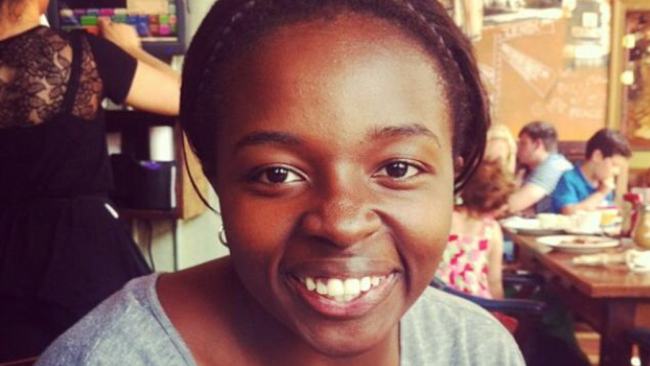Harvard Law Review elects first black woman president—of Nigerian descent

BY ANGELA ROBBINS
Harvard Law Review, one of the most prestigious academic publications in the United States, earlier this week announced the election of Imelme A. Umana, from Harrisburg, Pennsylvania as its president. Umana, of Nigerian descent, will be in the coming year the 131st leader of the publication and the first woman to hold the position.
Umana is no stranger to such high-profile positions at Harvard. Back in 2012, she won the presidency of the University’s Institute of Politics John F. Kennedy in a festive atmosphere befitting the occasion, with balloons dropping from the ceiling of the room, not without some tears being shed. Now, as president of the Harvard Law Review in the coming year, Umana will carry the heavy burden of overseeing the large pool of more than 90 student editors and permanent staff members who make up the publication, and communicate with its writers that include faculty members.
In reaction by email to Umana’s election, the Review’s outgoing president, Michael Zuckerman, wrote:
“ImeIme is one of the most brilliant, thoughtful, and caring people I’ve ever met, and the Law Review is in phenomenally good hands.”
Pointing out the historic nature of the election of the first female to the job, Zuckerman also wrote:
“For a field in which women and people of color have for too much of our past been marginalized or underrepresented, her election is an important and encouraging step toward a richer and more inclusive legal conversation.”
As a clear signal of increased diversity, the 12 contenders for this sought-after position included eight women and eight people of color. Candidates are required to answer questions from a forum of editors, answer submitted questions, and participate in mock editorial activities.
Umana, a 2014 graduate of Harvard College with concentration in government and African American studies, is expected to receive her law degree in 2018. Her previous experiences included not only serving as president of the Harvard’s Institute of Politics, but also working at the Hiphop Archives & Research Institute, not to mention her internship in the public defender’s office in Washington, D.C. in the summer of 2013, working as a criminal law investigative intern.
The otherwise self-assured young lady recounts her experience with a high degree of humility.
“It’s very easy to presume that you know a lot about urban communities and the troubles they face,” the Harvard Crimson [LINK] quoted her as saying. She added: “I read ‘The New Jim Crow,’ and I read ‘Sister Citizen,’ and I read ‘Killing the Black Body,’ and I’ve watched all of these documentaries, and I’ve written all these papers, but the internship, really, in just a few days, showed me how little I actually did know about the realities of the situation and urban America.”


